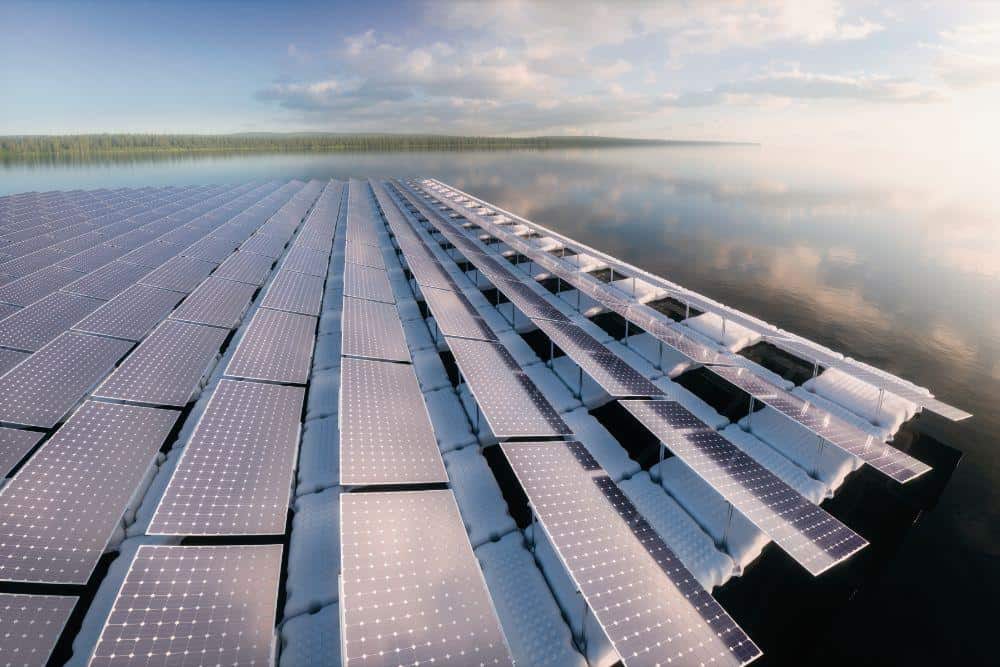Where to Go for Updates on the Solar Industry
The solar industry is experiencing a surge in growth and activity, with more people looking to invest in the technology than ever before. With so much interest and investment comes an abundance of solar industry blogs, forums, and news — giving everyone access to quality resources for learning about it.
This article will explore some of the most recent solar power news and updates, emerging technologies and innovations, resources for those who want to learn even more, and what the best solar power investments are.
Benefits of Solar Energy
Here are some of the main benefits of solar energy.
Save Money on Electricity Bills
Installing solar panels can decrease electricity costs and lessen reliance on the utility grid. The price of solar has dropped significantly in recent years, making it an attractive option for many households and businesses looking to cut down their electricity bills. Incentives, such as tax credits, can be obtained by those who opt to install solar power systems.
Renewable and Environmental-Friendly
Solar energy is a renewable, clean power source with energy efficiency that does not release greenhouse gases or other contaminants when producing electricity. It is an ideal choice for reducing carbon emissions and fighting climate change. As the demand for solar projects rises, we are transitioning from fossil fuels to renewable energy sources such as wind and solar.
Improved Air Quality
Another significant benefit of switching to solar is improved air quality due to reduced emissions from burning fossil fuels for electricity production. Burning coal releases particulates into the atmosphere, which can cause respiratory issues for those living near these plants if inhaled over time.
Solar Industry News & Updates
The solar sector keeps evolving, with new movements and technologies constantly appearing. Keeping an eye on government policies and regulations and industry-wide trends is essential to stay current on the latest news and updates in this rapidly changing sector.
Latest Developments in the Solar Industry
Recent years have seen a surge of activity within the solar energy sector, from increased investment into research and development to more energy efficiency production methods for solar panels.
Floating Solar Farms
One of the most notable advancements has been floating solar farms – large arrays of photovoltaic cells placed atop water bodies like reservoirs or lakes. Floating solar farms have become increasingly popular due to their ability to generate clean electricity without occupying valuable land.

Conceptual Floating Solar Array
Collaboration in Solar Projects is on the Rise
Interest in collaborative solar projects, which enable multiple households or enterprises to access renewable energy sources at cheaper rates than traditional methods, is rising. According to the study, this will help the consumer maximize and efficiently use capital in solar projects.
One of these collaborative solar projects is the Farmington Facility which created new solar electricity in New England. It has provided immediate benefits to each college while promoting energy sustainability.
Tax Credits and Government Subsidies for Switching to Solar
The SEIA is devoted to advocating for policies that bolster the solar energy sector, both on a federal and state level.
Moreover, regulatory agencies such as the Federal Energy Regulatory Commission (FERC) have implemented rules for supporting distributed generation systems – including rooftop PV installations – while promoting competition among utilities across different states.
Incentivizing the switch from fossil fuels to solar energy, governments worldwide are offering tax credits and subsidies for investments in renewable sources with installation years 2017 to 2034.
Electric Vehicles Powered Via PV Installations Double the Global Market Share
We mustn’t forget how electric vehicles powered solely off batteries recharged via PV installations could revolutionize transportation if enough people switch over. Given the current surge in climate action, it’s likely that EVs will double their global market share every two years.
Solar Technology & Innovations
Solar technology has recently made tremendous progress, introducing more productive and budget-friendly ways to capture the sun’s power. From drifting solar installations to energy storage frameworks, various technologies are accessible for those seeking solar power.
Types of Solar Technologies Available
There are several different types of solar technologies available today.
- PV panels turn sunlight into electricity;
- Solar thermal plants utilize mirrors/lenses to concentrate rays onto a receiver;
- CPVs focus light on minuscule cells made from semiconductors – these are some of the different types of solar tech currently available;
- Floating solar systems enable large-scale installations on water surfaces like lakes or reservoirs.
Advantages of Newer Technologies Over Older Ones
Many newer technologies offer improved efficiency over older ones.
For example, CPV systems can achieve up to 40% greater efficiency than traditional PV panels due to their ability to focus light directly onto small cells rather than relying on diffuse reflection off larger surfaces like conventional PV panels do.
Floating solar arrays have advantages over land-based installations since they require less space and can be installed quickly without extensive infrastructure investments or site preparation work.
With the boundless possibilities of modern solar technologies, it is essential to have access to reliable information to make sound decisions regarding their utilization. It is imperative to have access to reliable information when researching this sector for people to make knowledgeable choices.
Finding Quality Resources for Learning About Solar Energy
As the demand for renewable energy sources grows, more people are interested in learning about solar power. To ensure you’re getting quality information on solar energy, several resources can help you stay up-to-date on news and trends in the sector.
Solar Energy Industries Association (SEIA)
The Solar Energy Industries Association (SEIA) website offers an extensive blog section covering everything from new product releases to government policies affecting solar development.
SEIA’s Goal is for Solar to Comprise 30% of US Energy Production by 2030
The Solar Energy Industries Association (SEIA) provides members with access to educational materials, new product releases, and government policies affecting solar development.
Clean Energy Council
Clean Energy Council offers helpful resources for installers who work with residential customers, while Federal Energy Regulatory Commission (FERC) focuses on regulations governing larger-scale projects at utility-level installations.
Certified Energy Practitioners (CEP)
For those seeking to become solar energy experts and solar installers, various online courses and tutorials provide knowledge on photovoltaic systems design, wind power generation technologies, geothermal energy sources, and more.
Certifications through programs like Certified Energy Practitioners (CEP) can be obtained by those interested in becoming professional installers or technicians, working directly with customers installing rooftop panels, or other equipment associated with large-scale projects.
Investing in the Solar Industry
Investing in solar could be a profitable option for those seeking to diversify their investments and capitalize on the expanding renewable energy sector. Before making any decisions, weighing the advantages and disadvantages of each potential investment option is essential. It is critical to comprehend the benefits and drawbacks of each option before committing.
Investors and solar installers can choose from various investment options in the solar industry, such as stocks, bonds, mutual funds or ETFs (exchange-traded funds), each offering advantages and disadvantages to consider when making an investment decision.
For example, direct investments offer more control over where your money goes but require more research, whereas indirect investments provide instant diversification but come with higher fees.
Investing in the solar industry offers potential returns that could exceed those of traditional markets, along with possible government tax incentives; however, there are also risks, such as regulatory changes or technological advancements.





